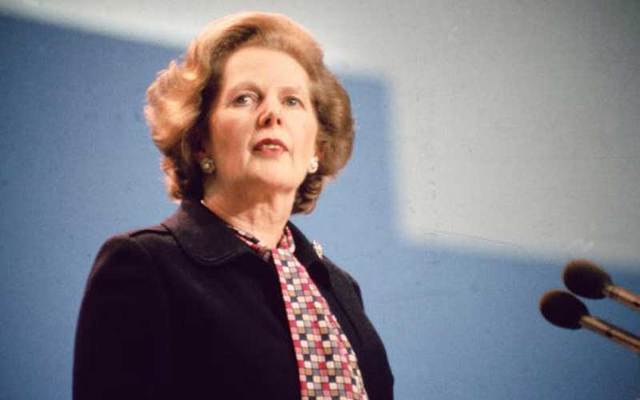Margaret Thatcher considered a Cromwell-type solution to the Northern Ireland problem by forcibly moving Irish Catholics in Northern Ireland from the six counties a new book has revealed.
The late British Ambassador to Ireland, David Goodall, in his posthumously published memoir The Making of the Anglo-Irish Agreement of 1985 – A Memoir, stated that Thatcher seriously considered the Cromwell motion.
As reported in the Irish Times Thatcher “asked why arrangements could not be made to transfer those members of the minority community who did not wish to remain under British rule to the Republic. After all, she said, the Irish were used to large-scale movements of population. Only recently there had been a population transfer of some kind, she said.”
Goodall reports there was a stunned silence among the Irish and British diplomats and politicians when she stated that.
Read more
“At this point, the silence around the fire became transfused with simple bafflement. After a pause, I asked if she could possibly be thinking of Cromwell. “Cromwell: of course.” “Well, prime minister, Cromwell’s policy was known as ‘To Hell or Connaught’ and it left a scar on Anglo-Irish relations which still hasn’t healed”. The idea of a population transfer was not pursued.”
It is also revealed in the book that Thatcher admitted herself she had some Irish ancestry despite denying it for decades.
Godwin states he was trying to make Thatcher aware that the emigration of so many Irish to Britain over the years complicated the issue and that he himself had Irish grandparents.
“I suggested that relations between England and Ireland were complicated by the interpenetration of our two populations: so many people in England being of Irish or partly Irish descent and vice versa in Ireland. Her eyes flashed: “I am completely English”, she said. I said that both my grandfathers had been born in Ireland, and there were thousands of English people who could say the same. Her face was shadowed by a momentary doubt: “Well, I suppose I am 1/16th Irish: my great-grandmother was a Sullivan”.
Thatcher also treated the Irish Taoiseach Garret FitzGerald with contempt, especially after receiving the first draft of what became the Anglo Irish Agreement which in 1985 gave the Irish Republic a consultative role in framing Northern Irish policy. She memorably shouted “Out, Out Out “ at the three Irish government options which caused acute embarrassment on the Irish side.
“Mrs. Thatcher held it up in front of her and proceeded to read the text aloud, rather slowly and in a tone of mocking distaste. “At a meeting of the Anglo-Irish Intergovernmental Council,” she began “What on Earth is that?” “You invented it, Margaret”, said Garret between gritted teeth.
It was a moment at which everyone around the table felt acutely uncomfortable. Peter Barry said audibly to me “I’m not going to sit and listen to this” and made to walk out, but I put a restraining hand on his arm and he stayed in his seat.”
The book also revealed that two top Tories, Enoch Powell and Ian Gow, both hardline unionists, heavily influenced her and that she was furious when Ireland refused to back the Falklands War.

Looking for Irish book recommendations or to meet with others who share your love for Irish literature? Join IrishCentral’s Book Club on Facebook and enjoy our book-loving community.




Comments